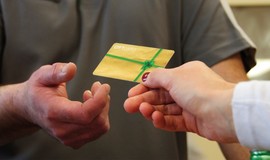
How to digitally archive your records and papers
While
we live in an increasingly digitally driven world, we still get a lot
of physical items that we have to hold on to for various practical,
legal, and tax requirements. Unfortunately this can quickly take up too
much space for material that you might only use once every few years at
best. There’s also the risk that should some disaster happen, like a
fire, all your records go up in smoke and suddenly you are in real
trouble when you do need to call it on again. What about the issue of
finding one record in hundreds when might only have part information on
how to find it. The solutions to these issues is digital archiving
In
a nutshell, digital archiving is the conversion of paper documents into
their electronic equivalent while retaining as accurate copy of the
information as can be made. So why do it
- Minimises space – A
modern portable hard drive the size of a pack of playing cards can
store a terabyte or more of information, or 10s of thousands of scanned
pages of documents. You can store hundreds of books worth in a cheap
flash drive or memory card.
- Easy to copy – Because everything
is just data, copying is just a couple of button clicks on the computer
screen and is a 100 percent accurate copy of the master. A lot better
these photocopies of photocopies we use to have to deal with.
- Easy
to backup offsite – thanks to modern internet connections, you can have
a computer automatically copy all your records to another one in a
different building, city, country, or somewhere in the ‘cloud’. This
means if you lose your records at your place of work, there’s a backup
that can restore everything in just a few hours at worse. If you don’t
want to use the internet, you can just have a few portable hard drives
and take copies off site manually
- Available to everyone
instantly – Once on a computer drive, if you have your system set up
right then every computer on your business network would be able to
access with a few button clicks.
- Searchable – One of parts of
digital archiving is Optical Character Recognition processing. With the
right software the documents can be turned into text like a wordpressor
or spreadsheet document, allowing you to easily search and copy
information. That same copied information then can be edited like any
other document.
So
how do you get your documents digitally archived? Simple, come to us at
Copy Express. We handle everything from books, stacks of paper records,
to old engineering and architectural plans. What can we offer for you
archiving needs.
- Books and Papers – can be scanned page by
page by hand and then compiled into a pdf, with the option of being set
up for searchable text or even converted into a word document. If we
can, we will load it into automatic document scanner as this speeds up
the process and cut the costs to you.
- Posters and Art – Now
depending on the size and the nature of what it is we can either do on
our A3 flatbed scanner or feed it through our wide format scanner. Wide
format scanner can scan items up to 1.2m wide and any length but as it
is a roll fed system (think of those old washing machine mangles) any
item put through is at the owner’s risk. The output is a your choice of
pdf, tiff, or jpeg up to 600dpi in resolution.
- Plans – our wide
format scanner is designed with plans in mind so can handle all types of
plans, including blueprints and tracing paper ones. Once scan you can
have it in a variety of formats, and we can even run special software
processing that will correct damage and try to make everything is square
and consistent no matter the age of the plan.
From
there we can burn everything on a disc, copy it on to a flash
drive/memory card/hard drive you bring in, or send it to you by email or
via online storage site.
Now there are some limitations for what we
can do, copyright is an obvious one, we will do our very best to give
you a solution that will fit your needs and help declutter your office.
Call us today and let us help you get digital today.


